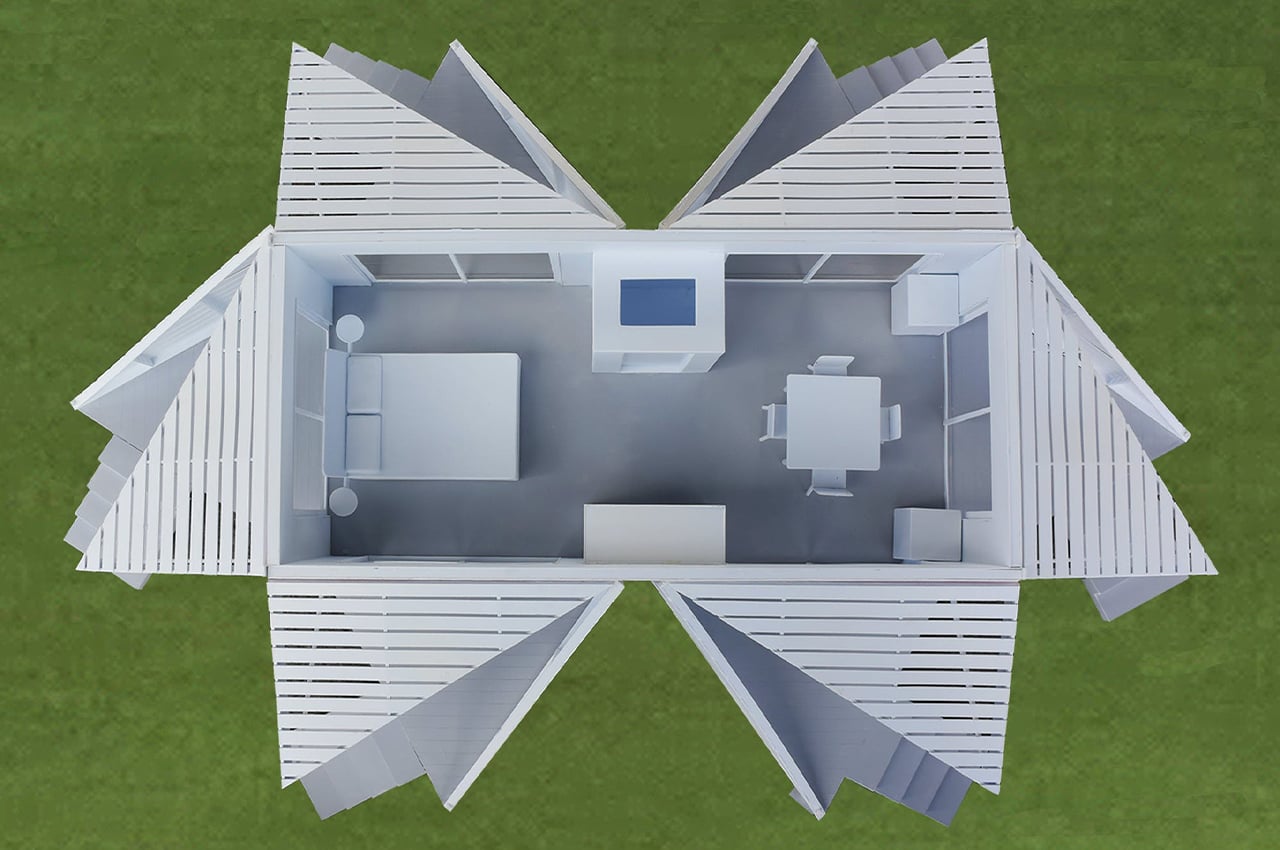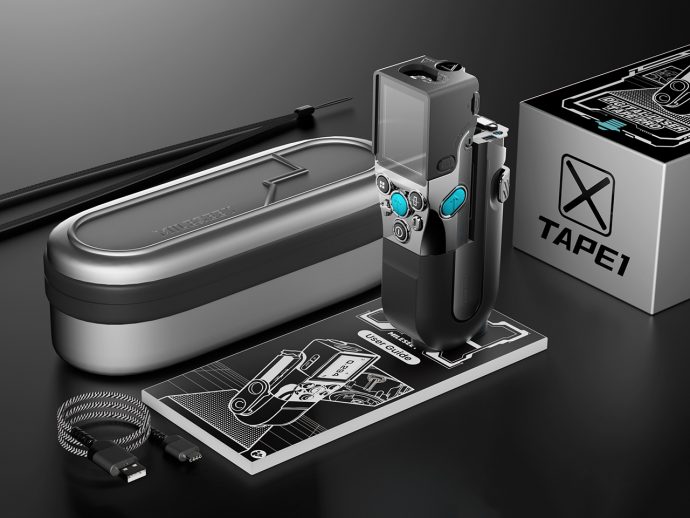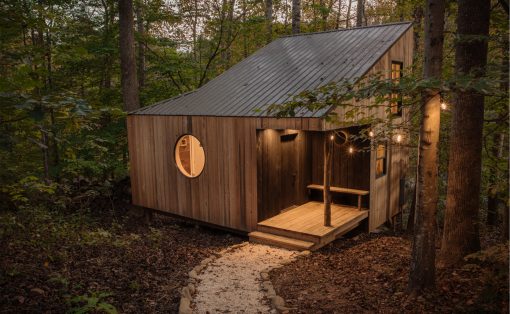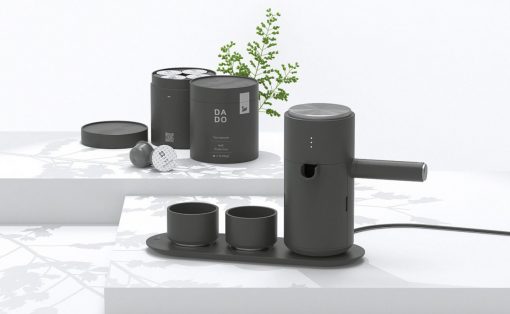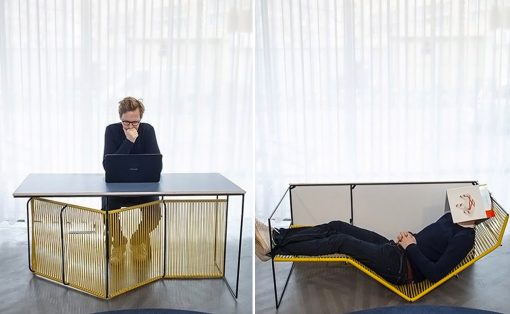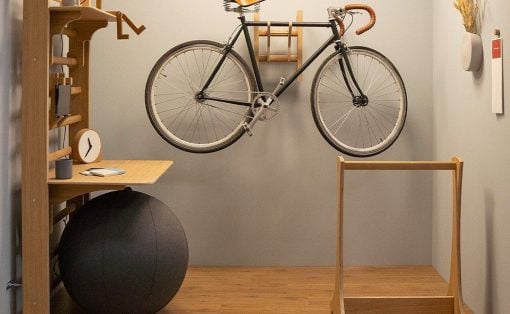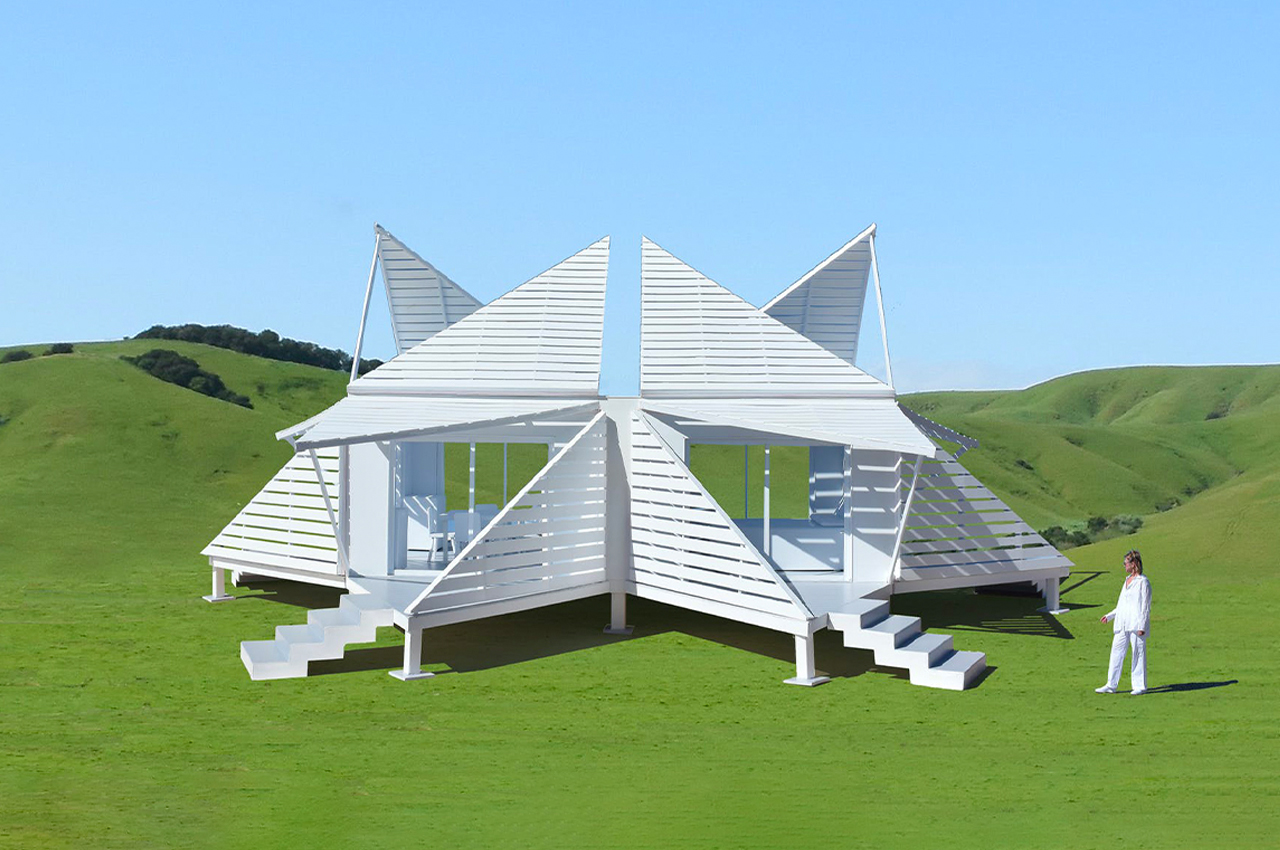
The Folding Dream House is an expandable modern home that transforms from a fully-enclosed cubic structure into a multi-layered dreamhouse that combines indoor and outdoor living.
Shapes have always been a source of inspiration for designers. Shapes make up the structure of our world and reveal endless configurations when combined together. Games like Tetris and structures like the Egyptian pyramids haven’t gone out of style for a reason. Playing with shapes is addictive and flexible.
Designer: Michael Jantzen
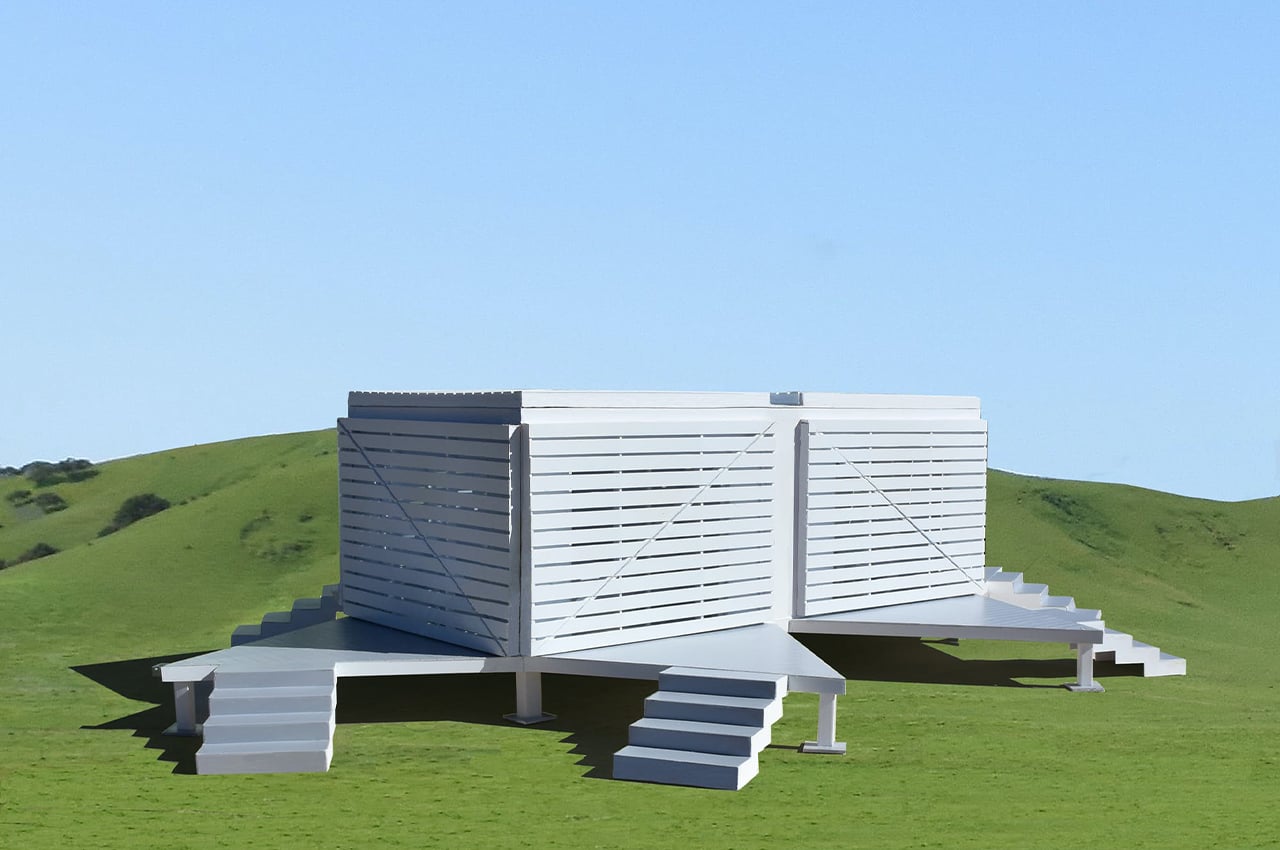
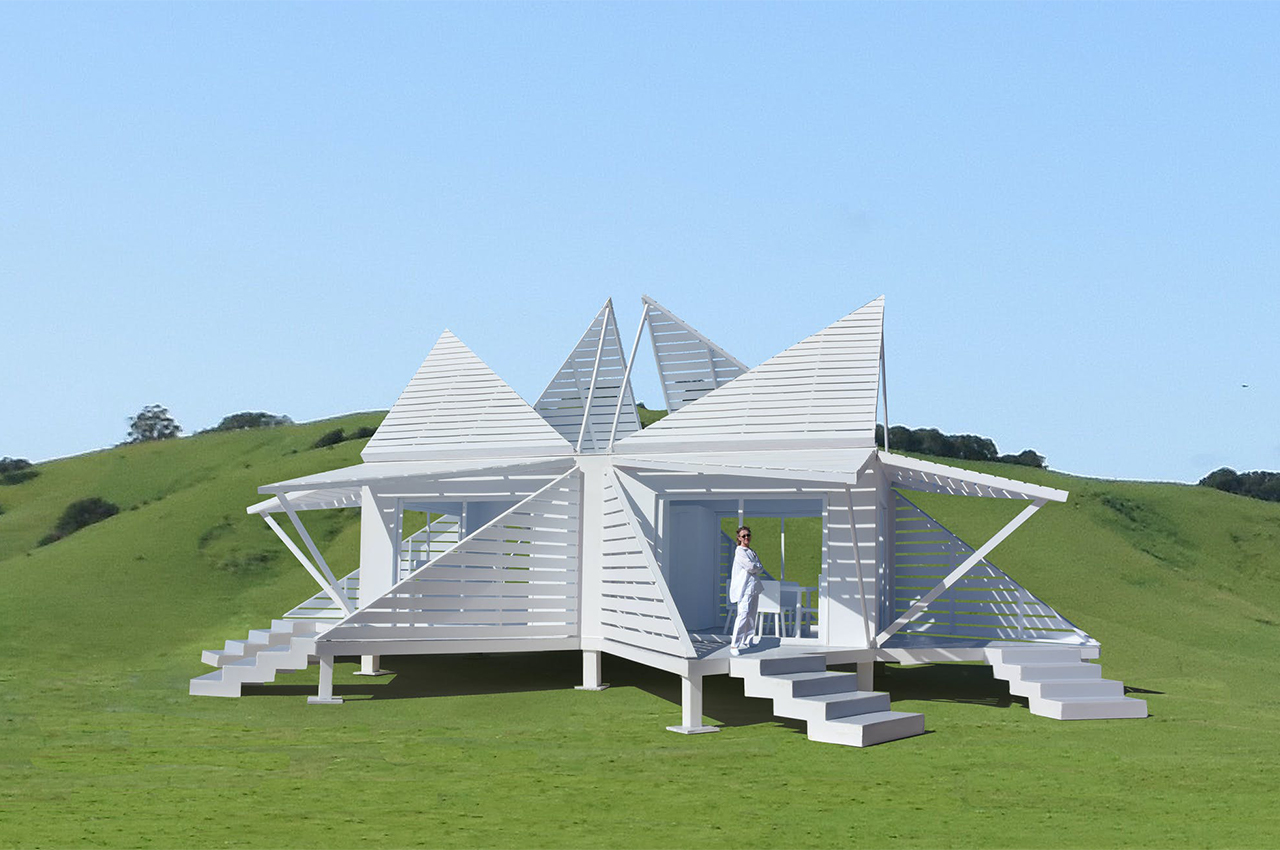
Michael Jantzen, a multidisciplinary artist based in New Mexico, is one artist who seems endlessly inspired by geometry. Merging sustainability, architecture, and technology, Jantzen developed an adaptable modern home called The Folding Dream House that expands from an enclosed, cubic structure into a multi-layered, dream home.
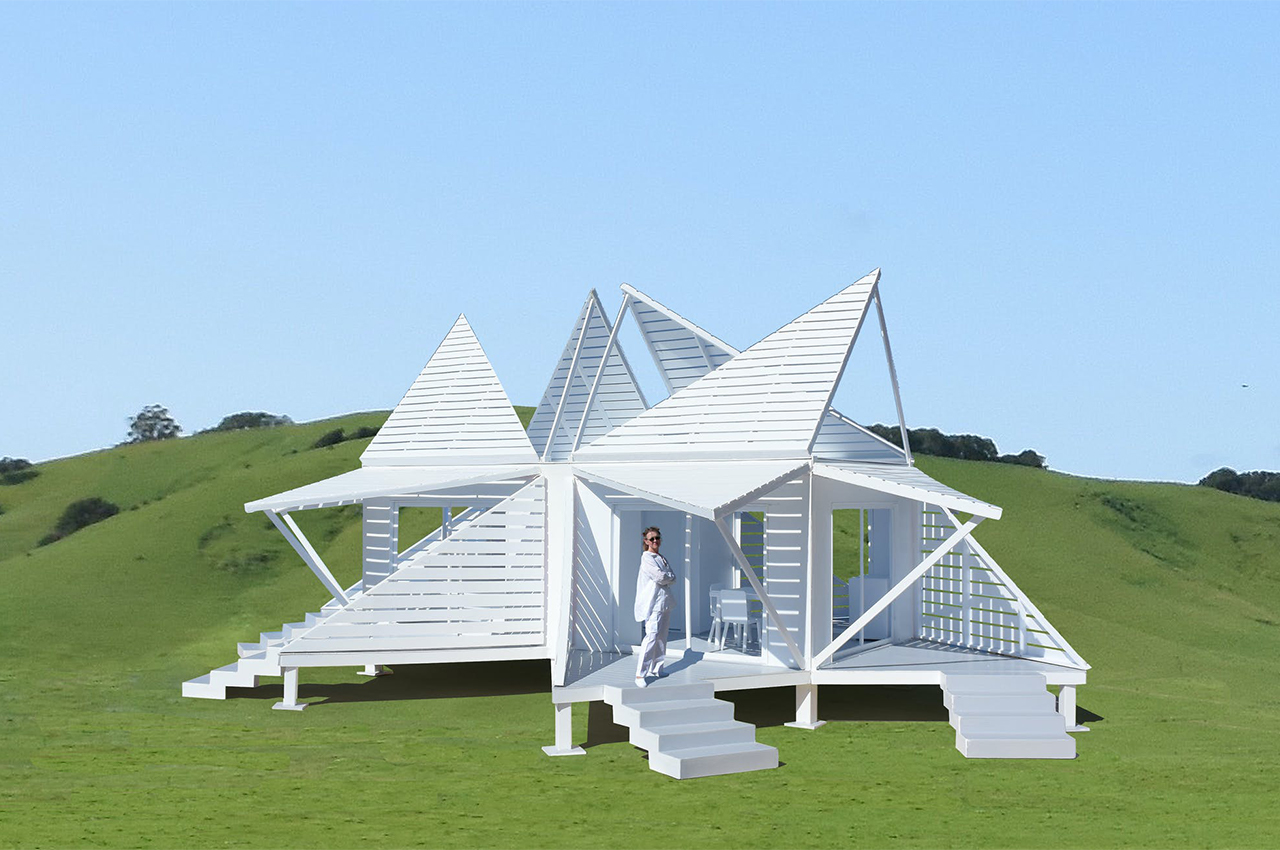
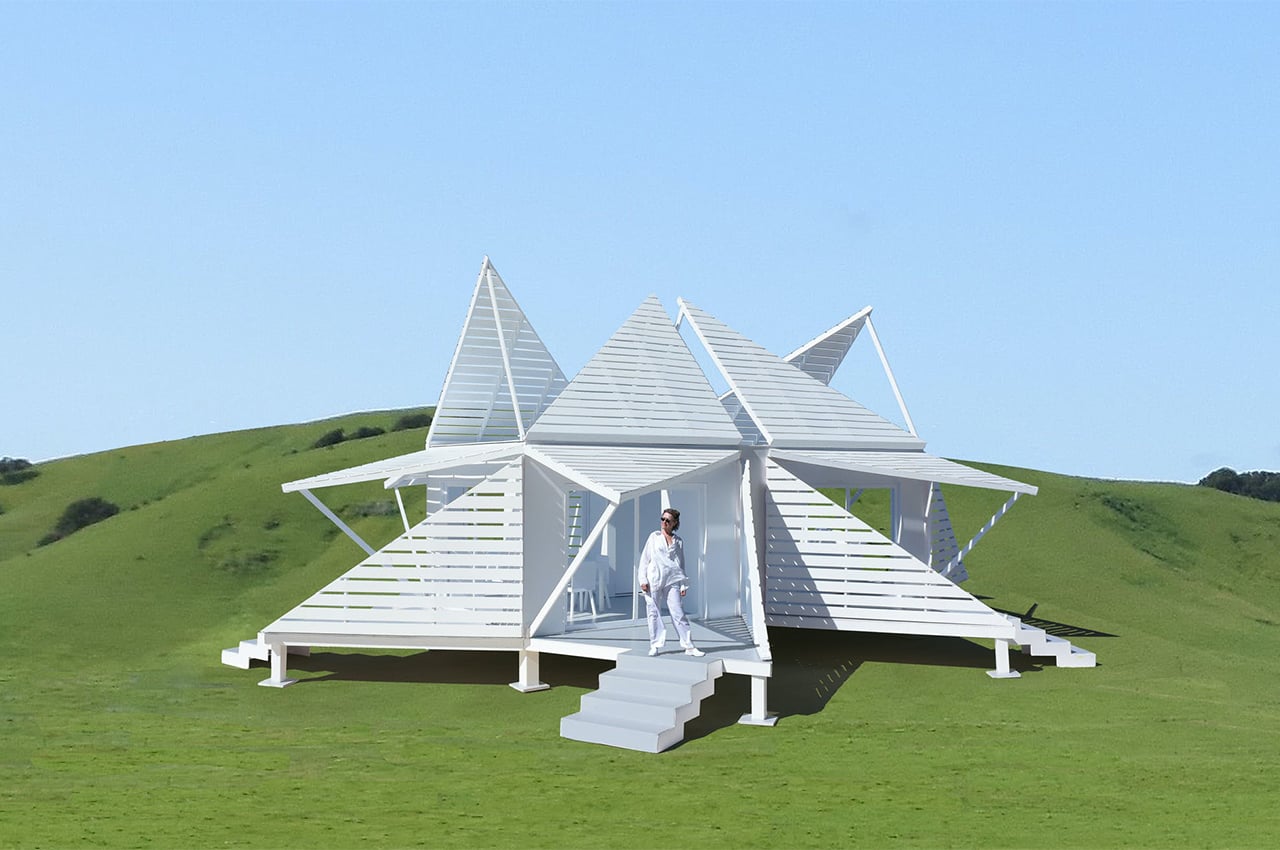
From its initial conception, the Folding Dream House was designed as a place to sleep. Amounting to the size of a conventional hotel room, the Folding Dream House consists of two prefabricated, portable modules. Each rectangular module is envisioned mounted atop an elevated, triangular foundation that connects the home’s expandable support beams to its frame. On each facade of the Folding Dream House, Jantzen envisioned triangular overhangs and partitions as foldable panels that expand from the home’s frame.
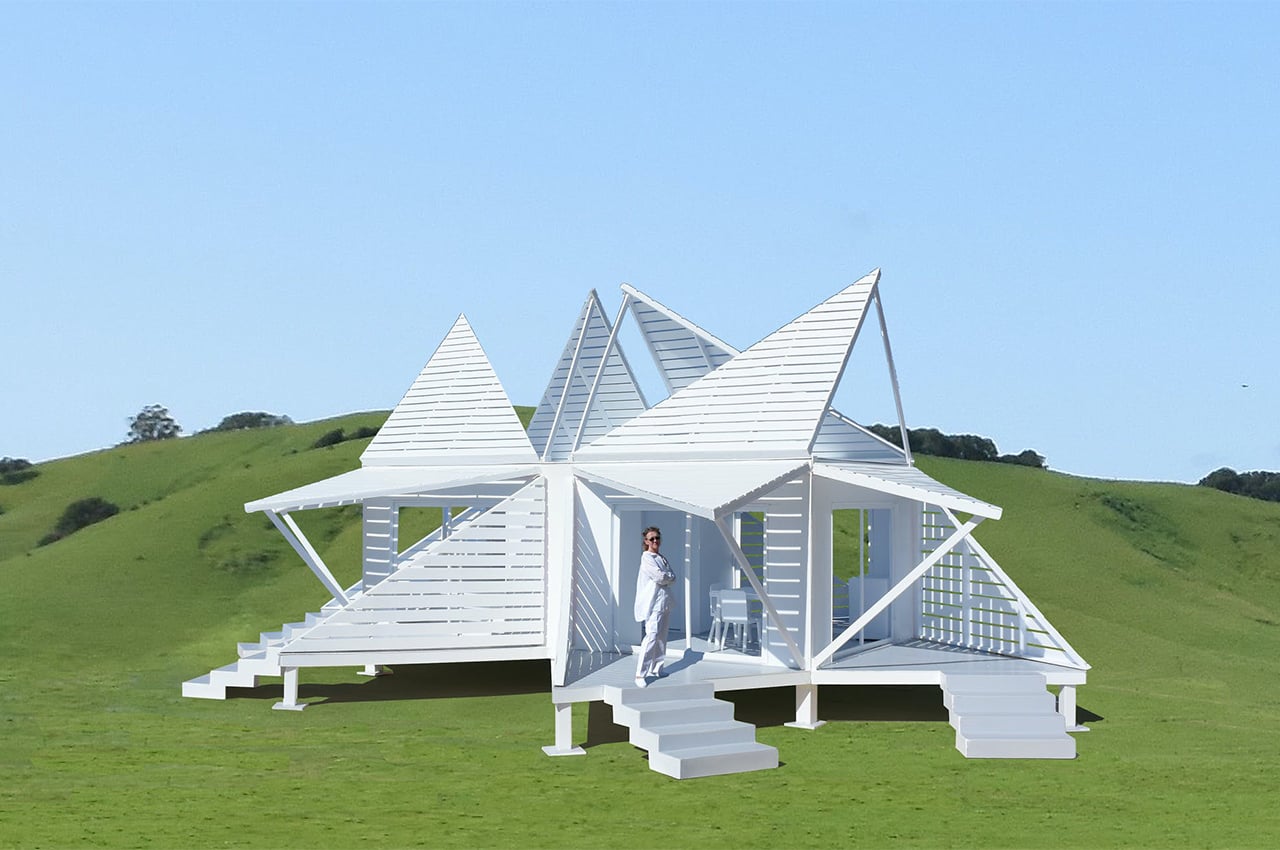
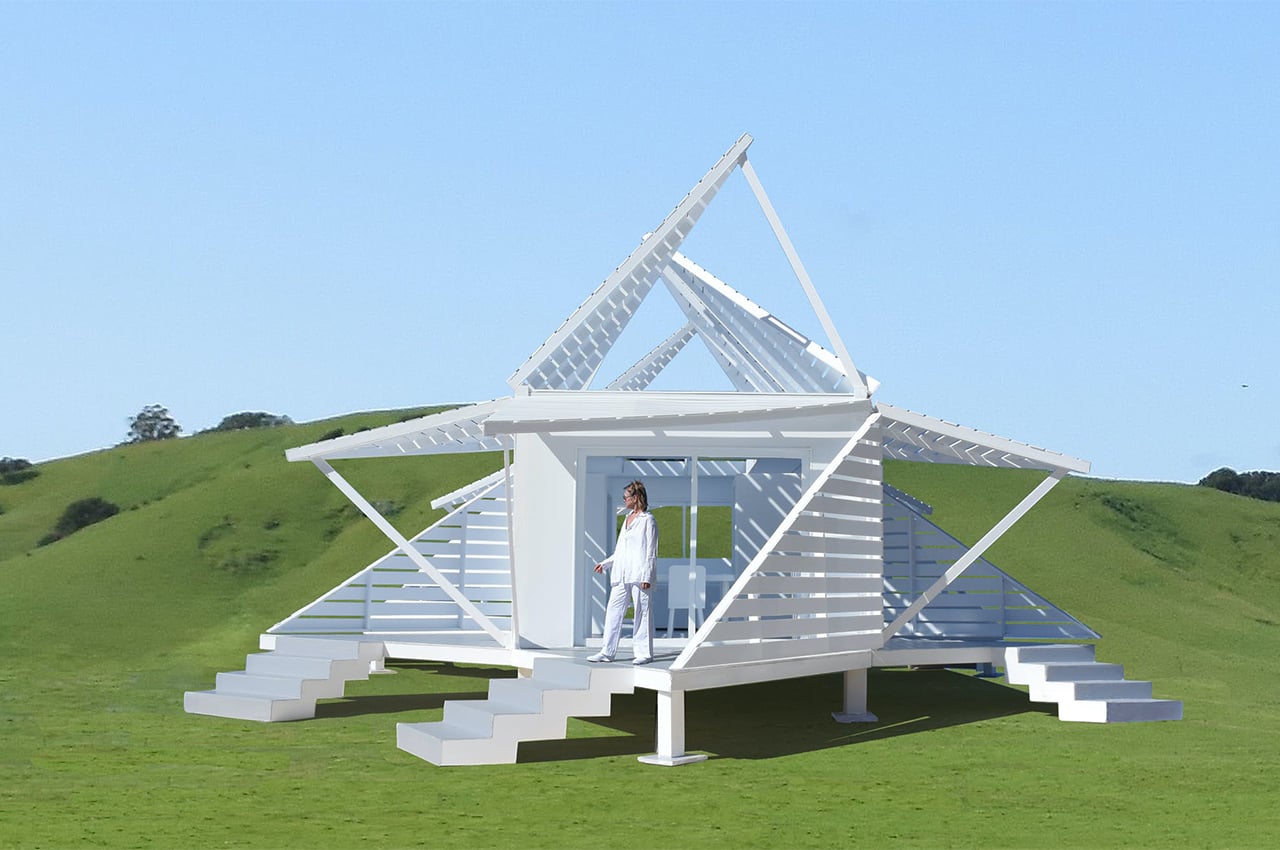
Explaining the expandable structure of the home, Jantzen describes, “These panels can be folded open or closed in many different ways around the modules in order to accommodate various functional and/or aesthetic requirements. The slotted panels can be moved and secured in ways that shade some or all of the sliding glass doors and skylights. They can also be folded completely around the modules in order to safeguard all of the glass when no one is occupying the house.”
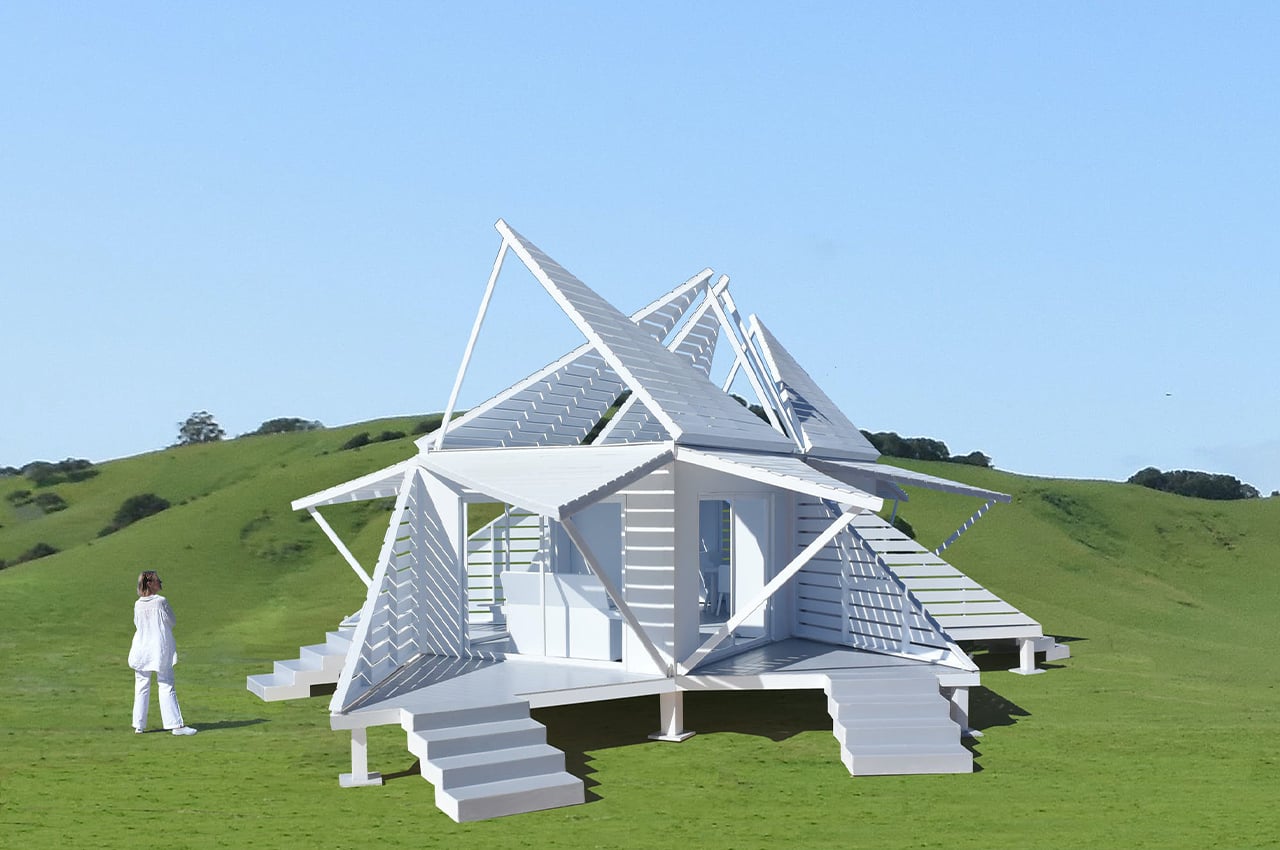
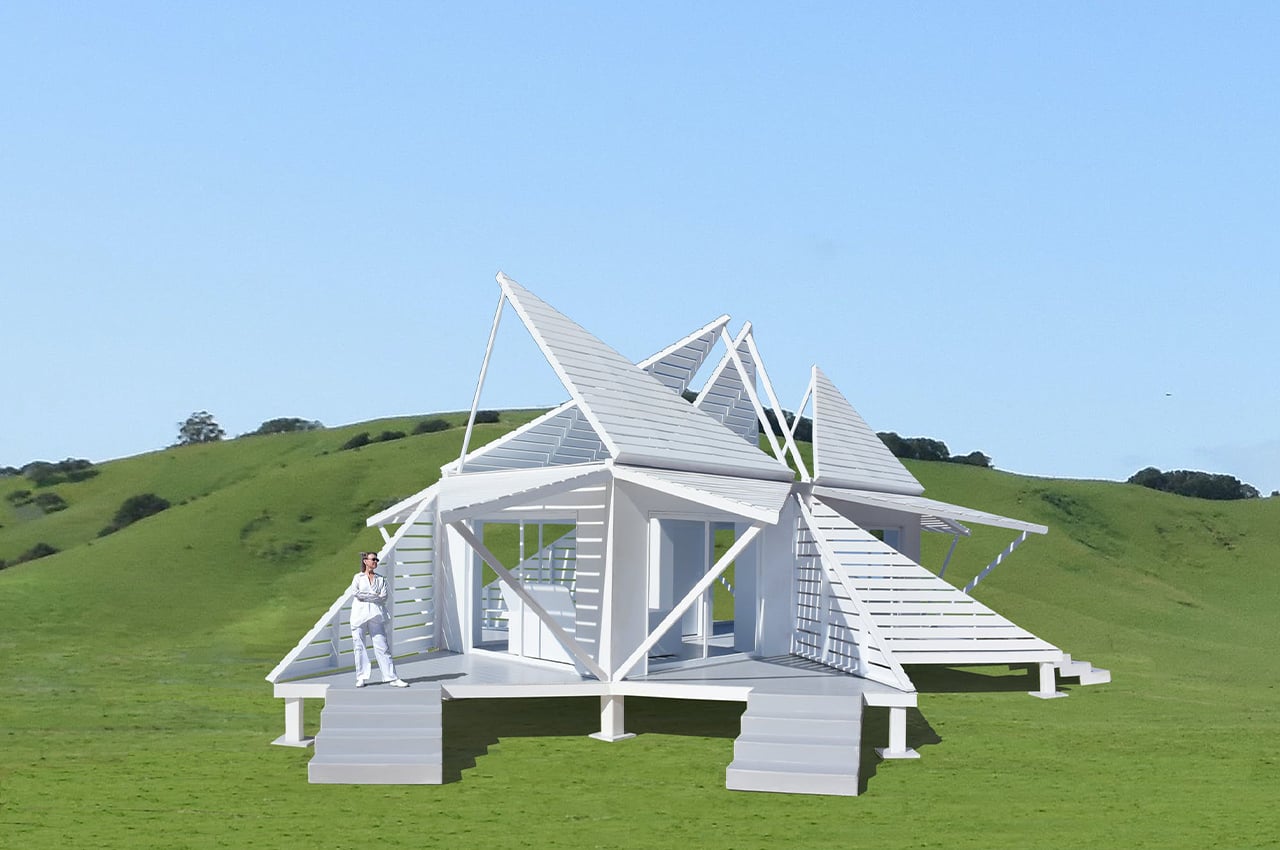
The Folding Dream House is currently in its conceptual phase, Jantzen envisions each wooden module painted in optic white. In addition to the expandable panels, each facade also supports six large sliding glass doors around the perimeter, and two large glass skylights in the roof. Inside the modules, Jantzen configured a queen-sized bed, a large closet, a shower, toilet, sink, combo pod, a dining table with four chairs, and two small portable food prep and storage units.
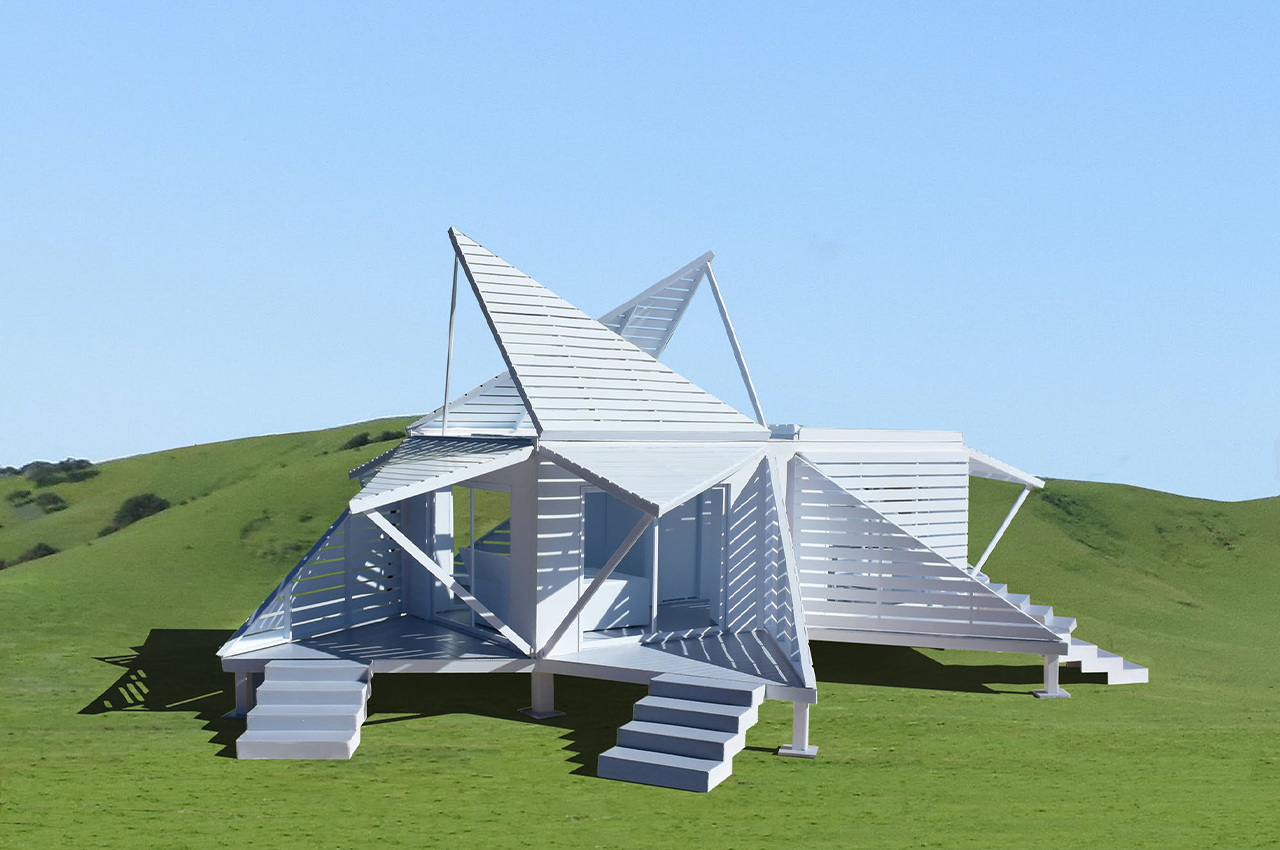
From each facade, the panels halve into triangles and fold out to provide shading with overhangs and privacy with partitions.
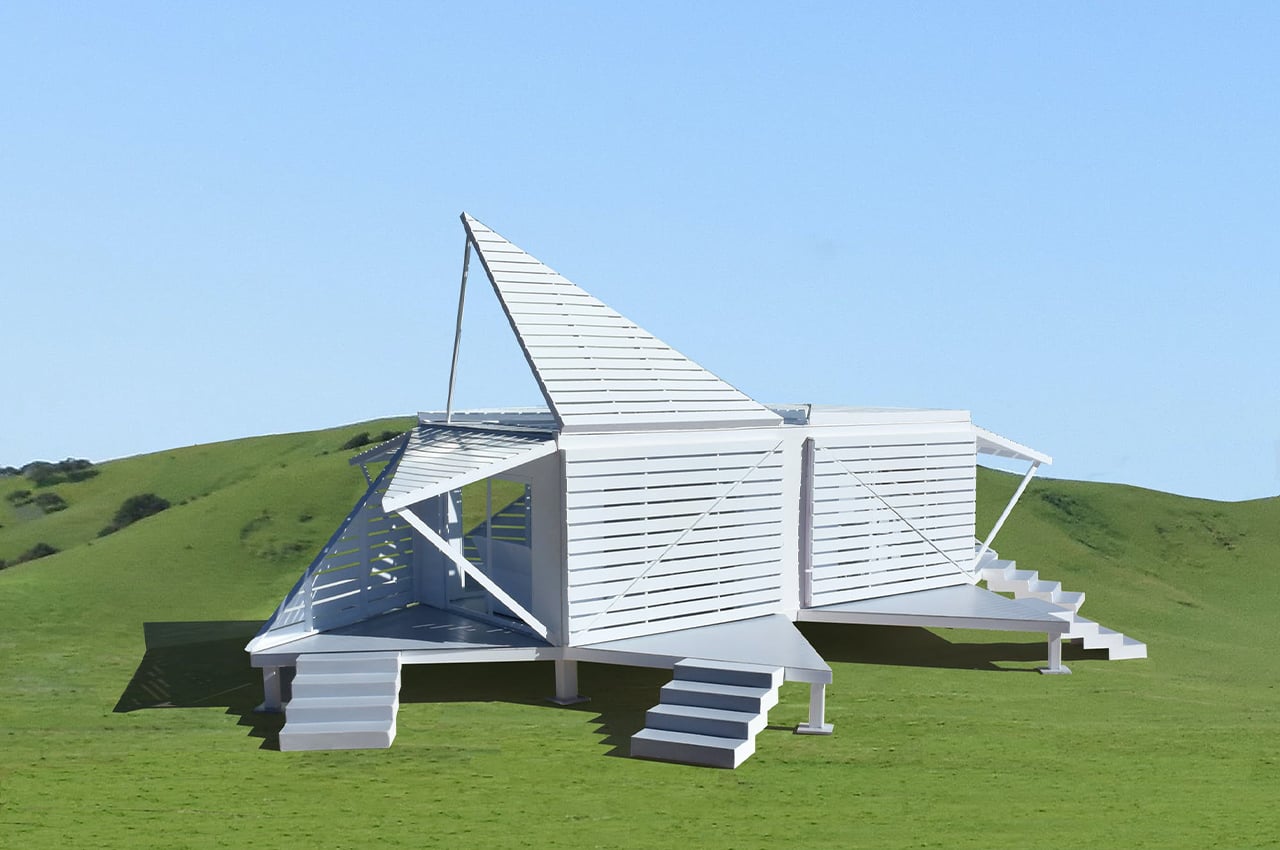
Then, the panels can fold back down to fully enclose the modular structure.
